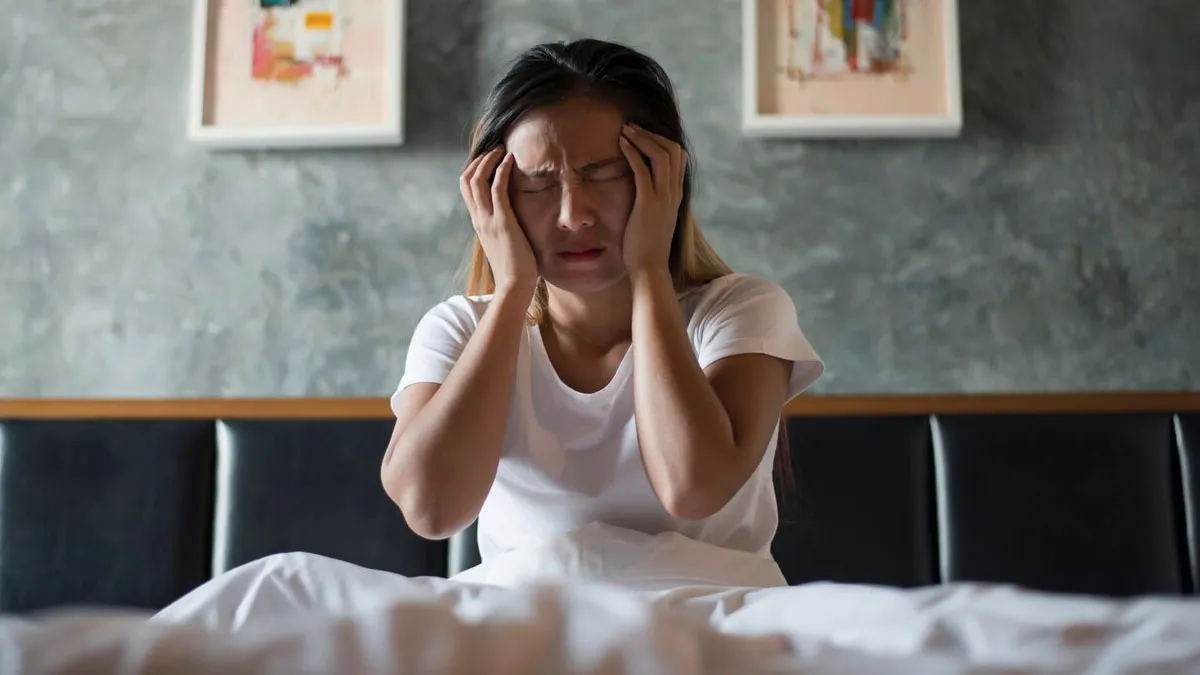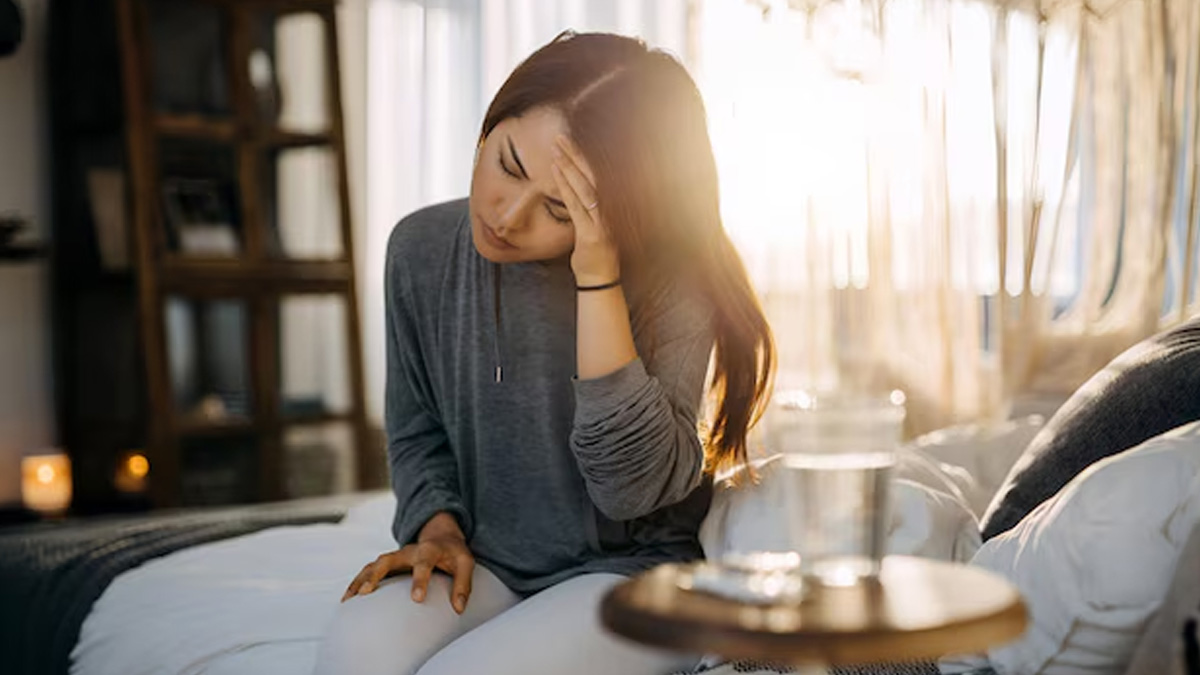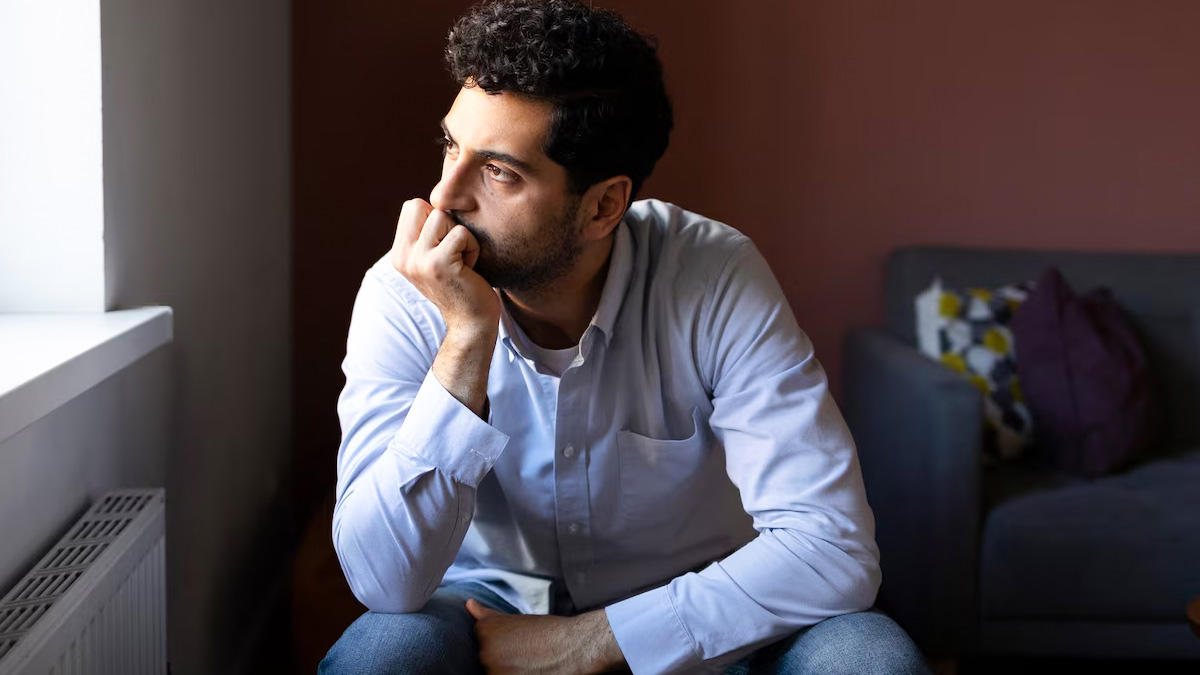
Have you ever woken up feeling an overwhelming dread or experiencing extreme stress that does not allow you to go about your daily chores? It can be unpleasant, uncomfortable, and characterised by anticipatory anxiety, where your thoughts about the future become overwhelming and create a negative mental chaos. Morning anxiety is real, and recognising it is the first step to managing the condition.
Table of Content:-
CHECK YOUR
MENTAL HEALTH

In an interaction with the OnlyMyHealth team, Dr Divya Shree K R, Consultant Psychiatrist, Aster CMI Hospital, Bengaluru, sheds light on some of the indicators of morning anxiety and ways to ease them.
How Can One Identify Morning Anxiety?

Morning anxiety is as real as it gets. The World Health Organization (WHO) recognises anxiety disorders as the world's most common mental disorders, accounting for 35.9 crore people in 2021. What's unfortunate is that approximately 1 in 4 people with anxiety disorders receive treatment for the condition.
According to Dr Divya, the common symptoms of morning anxiety include:
- Waking up with a racing heart
- Sweating
- Feeling short of breath
- Feeling restless, shaky, or tense in their muscles
- Having stomach problems like nausea, cramps, or loss of appetite soon after waking up
- Feeling nervous, thoughts rush in
- Worrying about the day ahead
- Having an unexplained sense of fear
- Trouble focusing
- Headaches
- Tiredness even after sleeping
- Irritability or mood swings, making it hard to start the day calmly
These symptoms may last for a short while or continue through the morning depending on stress and personal health.
Why Does Morning Anxiety Happen?

Dr Divya explains, "It [morning anxiety] happens because the body naturally makes more stress hormones like cortisol in the morning to help us wake up, but in some people, this rise feels too strong and creates worry or panic."
"Poor sleep, low blood sugar, or drinking too much caffeine can also make it worse.
"People with anxiety disorders often feel it more because their brain is already on high alert. Thinking about the day ahead, work pressure, or personal stress can also trigger these feelings," she adds.
Why Anxiety Levels Peak In Early Morning
According to Dr Divya, anxiety levels often peak in the early hours of the day because of natural body changes. Some of the common reasons include:
- The body releases more cortisol, a stress hormone, in the morning to help us wake up and get active. For some people, this extra cortisol feels overwhelming and makes them anxious.
- Low blood sugar after not eating overnight can also trigger shakiness, irritability, or nervous feelings.
- Poor or disturbed sleep during the night may make the brain more sensitive to stress when waking up.
- In people with anxiety, the mind may quickly start worrying about tasks, deadlines, or problems waiting in the day ahead.
Regular Stress Vs. Morning Anxiety

Many times, people confuse stress with anxiety. While both may seem similar, they are two different conditions. According to the American Psychological Association (APA), stress is an emotional response to an external trigger—short-term (like a work deadline or argument) or long-term (such as unemployment, discrimination, or chronic illness). It can cause irritability, anger, fatigue, muscle pain, digestive issues, and sleep problems. Anxiety, however, involves persistent, excessive worries that persist even without a trigger, with symptoms similar to stress, including insomnia, poor concentration, fatigue, muscle tension, and irritability.
Dr Divya shares:
| Aspect | Morning Anxiety |
Regular Stress |
When it starts |
Usually right after waking up, before facing any tasks or problems |
Arises as a reaction to specific situations (work deadlines, family issues, etc.) |
| Trigger | Often no clear trigger; can feel sudden and strong |
Caused by identifiable external events or challenges |
Common symptoms |
Racing heart, sweating, shaky hands, uneasy stomach, overthinking, fear of the day |
Irritability, fatigue, muscle tension, digestive issues, trouble sleeping |
| Duration | May feel more intense, occur regularly in the mornings, and last longer |
Often short-term and resolves once the situation is managed or passes |
| Nature | Persistent, recurring pattern tied to mornings |
Event-linked and situational |
Coping Strategies To Manage Morning Anxiety
Morning anxiety can be unpredictable. They can come suddenly and resolve with calming techniques. Coping strategies that can help reduce anxiety upon waking up include:
- Starting the day with slow, deep breathing to calm the body and mind.
- Gentle stretching or light exercise can release tension and improve mood.
- Eating a healthy breakfast with protein can balance blood sugar and reduce shakiness.
- Limiting caffeine in the morning can also prevent restlessness.
- Practising mindfulness or meditation helps stop racing thoughts.
- Writing down worries in a journal can clear the mind.
- Keeping a regular sleep routine and getting enough rest makes mornings easier.
- Listening to calming music, planning the day in small steps, and practising positive self-talk can also reduce morning anxiety.
Conclusion
Morning anxiety may feel overwhelming, but recognising its signs and understanding why it happens is the first step toward managing it. Unlike regular stress, which is linked to specific situations, morning anxiety can appear suddenly and linger, affecting both mood and productivity. Simple lifestyle adjustments can go a long way in easing symptoms. If morning anxiety persists or interferes with daily life, seeking professional support can provide long-term relief.
Also watch this video
Read Next
How Dialectical Behaviour Therapy Helped Selena Gomez Face Criticism and Heal? Exploring The Process
How we keep this article up to date:
We work with experts and keep a close eye on the latest in health and wellness. Whenever there is a new research or helpful information, we update our articles with accurate and useful advice.
Current Version
Sep 12, 2025 12:16 IST
Published By : Tenzin Chodon